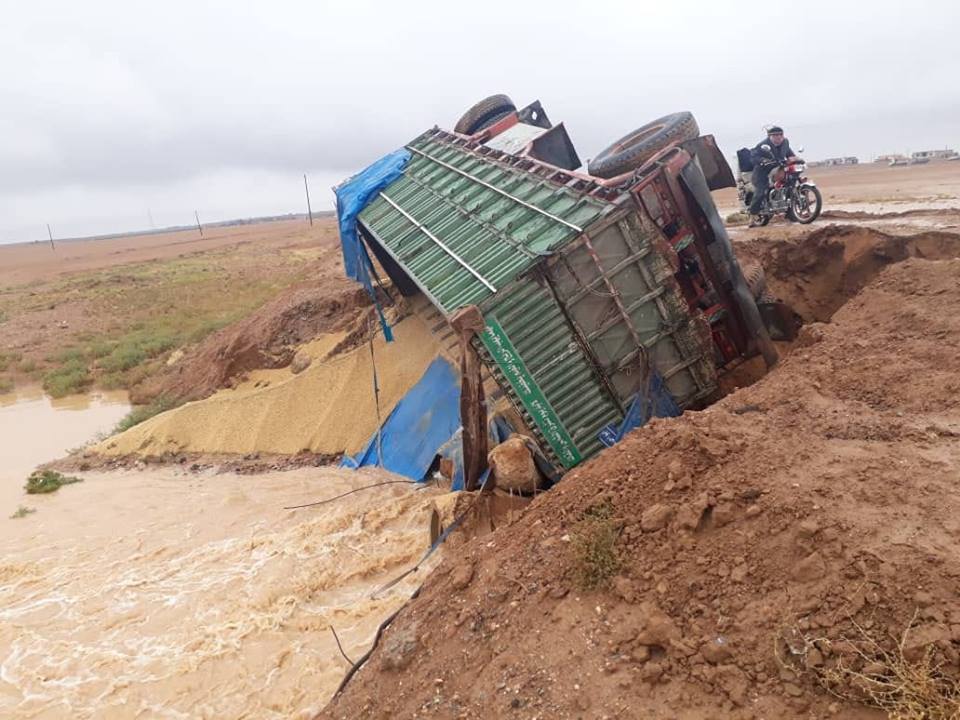(Zaman Al Wasl)- With the start of winter and the crushing storm rains in the eastern province of Raqqa, emerged the urgent need for large bridges on the Euphrates River and its tributaries along with the small bridges on the irrigation channels and valleys of Sailiya.
According our sources, most of the ferry or water outlets from under the small bridges on the roads are destroyed, which allowed the water streams caused by the rainfall to divide the province, apart from the Euphrates and Balikh bridges and the irrigation channel of the Balikh, which are still either damaged or unprofessionally repaired by being filled up with the debris of houses in the city of Raqqa. This solution does not withstand, of course, the floods caused by the heavy rains that befell by the province this month.
Before being towed into stone, according to the inhabitants, small bridges require "ferries" or pipes to allow the flow of flood waters and valleys without harming these bridges.
Low areas and stones with which some bridges are fixed should now be cemented to resist rain and water erosion.
According to news feeds of the Kurdish Democratic Union Party (YPD), the construction part of the Raqqa bridge or Al-Mansour has been completed. The metal part of the bridge, which is about 20 meters long, and which is the most dangerous part because of its extension over the Euphrates River, is now being prepared for.
The supervisors of the bridge repair say the permitted load on the bridge after it’s reparation is completed is 4 tons in all parts, which means it allows the passage of small taxi cars and medium pickups without load and small pickups with load.
The residents of Raqqa currently rely on ferries or "ponds" to travel through the Euphrates River, between the city of Raqqa and its southern suburbs with their cars and bicycles. In exchange they have to pay between 100-1000 Syrian pounds according to the sources available.
The workshops of rebuilding the collapsed part of the bridge changed the course of the river to the south by filling the main course with the rubble of houses from the neighborhoods of Raqqa.
Despite the narrowness of the old bridge, which extends over the Euphrates with a distance of 2.5 kilometers, its repair will allow the residents to travel between the banks of the Euphrates during their visit to the city of Raqqa without the need to resort to boats and ferries.
In June, the workshops began to work on the rehabilitation of the Al-Mansour bridge, which went out of service as a result of the military operations against Daesh in early 2017, and equally on the other vital bridges such as the Rashid bridge and the Alhus area and all the bridges of the Euphrates River.

Zaman Al Wasl
















Comments About This Article
Please fill the fields below.